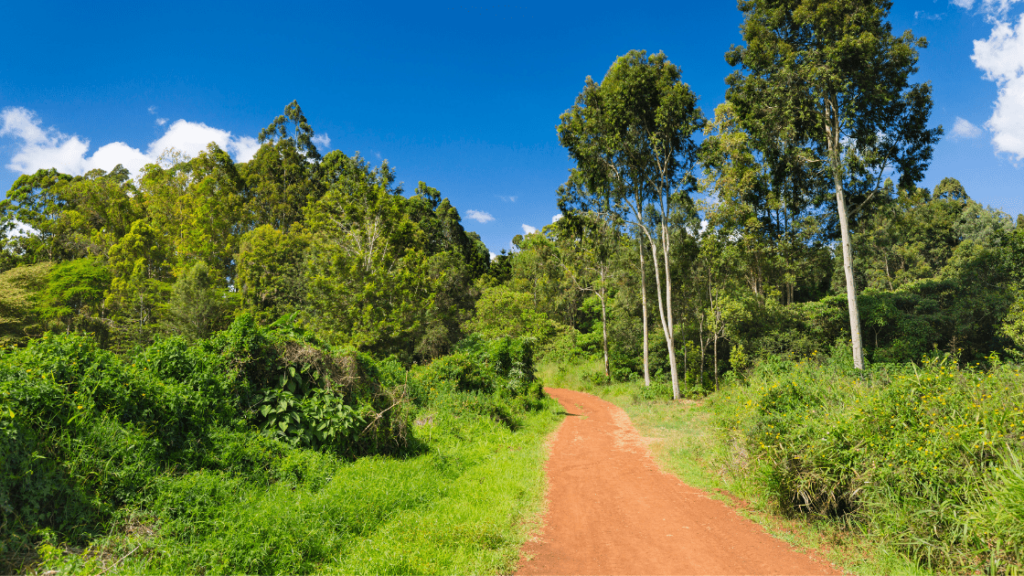The last few days have been, for many nature lovers, a dreadful case of déjà vu. The plans by the Kenyan government to excise part of the world famous Karura Forest for the construction of a dual carriageway along Kiambu Road, have rekindled memories of a dark past in Kenya’s environmental governance.
Let me make it clear, Karura Forest is not just another fanciful preoccupation of overzealous environmentalists. This 1,041-hectare sanctuary is a vital ecological and cultural treasure that supports the health and well-being of millions of Nairobians. The open canopy forest could pass for a vast extension of living rooms in Nairobi. It occupies a special intimate place in the hearts of Nairobians who throng there every weekend for some serenity and fitness. Indeed, Karura stands as one of Africa’s last remaining urban forests.
The proposed project, which also includes licenses for recreational facilities and an ablution block within the forest, represents an alarming disregard for this immense ecological and cultural value the forest holds.
Karura serves as Nairobi’s urban green lung, offering essential environmental services that benefit not only the neighboring communities but the city as a whole. It plays a critical role in water conservation, biodiversity preservation, and climate change mitigation. Its dense canopy absorbs carbon dioxide, mitigates urban heat, and improves air quality for millions of residents. Such value cannot be measured in monetary terms or replaced by a road.
In African tradition, natural sites like Karura are revered as sacred spaces. They embody the interconnectedness of people and nature, a bond rooted in respect and preservation. Moreover, the forest protects key water sources, ensuring steady infiltration of rainwater into underground aquifers. Destroying even a portion of this forest would lead to sedimentation in rivers, reduced water quality, and compromised water security for the city’s rapidly growing population.
Encroachment on this fragile ecosystem would exacerbate climate risks at a time when Kenya has committed to increasing its forest cover to 30% by 2032. How can we reconcile such commitments with actions that contradict them?
Beyond its ecological importance, Karura Forest holds profound cultural and historical value. It is a living legacy of Nobel Laureate Wangari Maathai’s tireless fight against illegal land grabs and environmental degradation. Hiving off any part of the forest on the 20th anniversary of Maathai’s Nobel recognition, would be a cruel act of betrayal.
Further, the Constitution of Kenya enshrines the right to a clean and healthy environment for all citizens. It also mandates sustainable development and the precautionary principle, which require that actions potentially harmful to the environment be avoided unless absolutely necessary. The government’s plans for Karura Forest appear to violate these principles.
Public participation, a cornerstone of environmental governance, has also been woefully inadequate. Stakeholders were not properly informed of the extent of the proposed excision or the long-term impacts on the forest. Licenses for the road construction were issued without comprehensive environmental assessments, further undermining trust in the process.
Karura Forest is a local treasure; a national and a global asset. The fight to protect it is about saving trees, safeguarding the future of Nairobi’s environment, economy, and cultural heritage. Even if those involved do not respect the environment, at least let them appear to, for God sees.
So please, leave Karura Forest alone. Use innovative solutions like expanding roads above existing ones—this is not rocket science. We will not be fooled. Today it’s 51.64 acres, tomorrow it’ll be more.
For the avoidance of doubt, Karura’s trees are not alone; outside here, there are stronger defenders ready to fight. We will not stand by and watch our heritage sacrificed at the altar of recklessness. This is a fight for our rights, our lives, our future, our legacy.
The late Prof Wangari Maathai left us with this chilling warning: “Nature is very unforgiving. If you destroy nature, it will destroy you’.
Together, let us rise and say with one voice: Hands off Karura Forest! Think green, act green!




1 Comment. Leave new
Dr. Kalua you’re spot on. Karura Forest is one of the last standing rearguard of life-supporting systems in the urban cities . Your pointed concern covers every aspects of our lives. Social, environmental, ecological, economic and other important functionalities in human environment and sustainable development.
With our skilled human resources in the field of infrastructural development there must be other options of expanding our roads to mitigate traffic congestion. Rather than proposed dual carriage why don’t we think about express ways, or vertical expansion. An alternative ways of addressing this is less costly than tampering with Karura which will have a life-threatening impact on our environment.